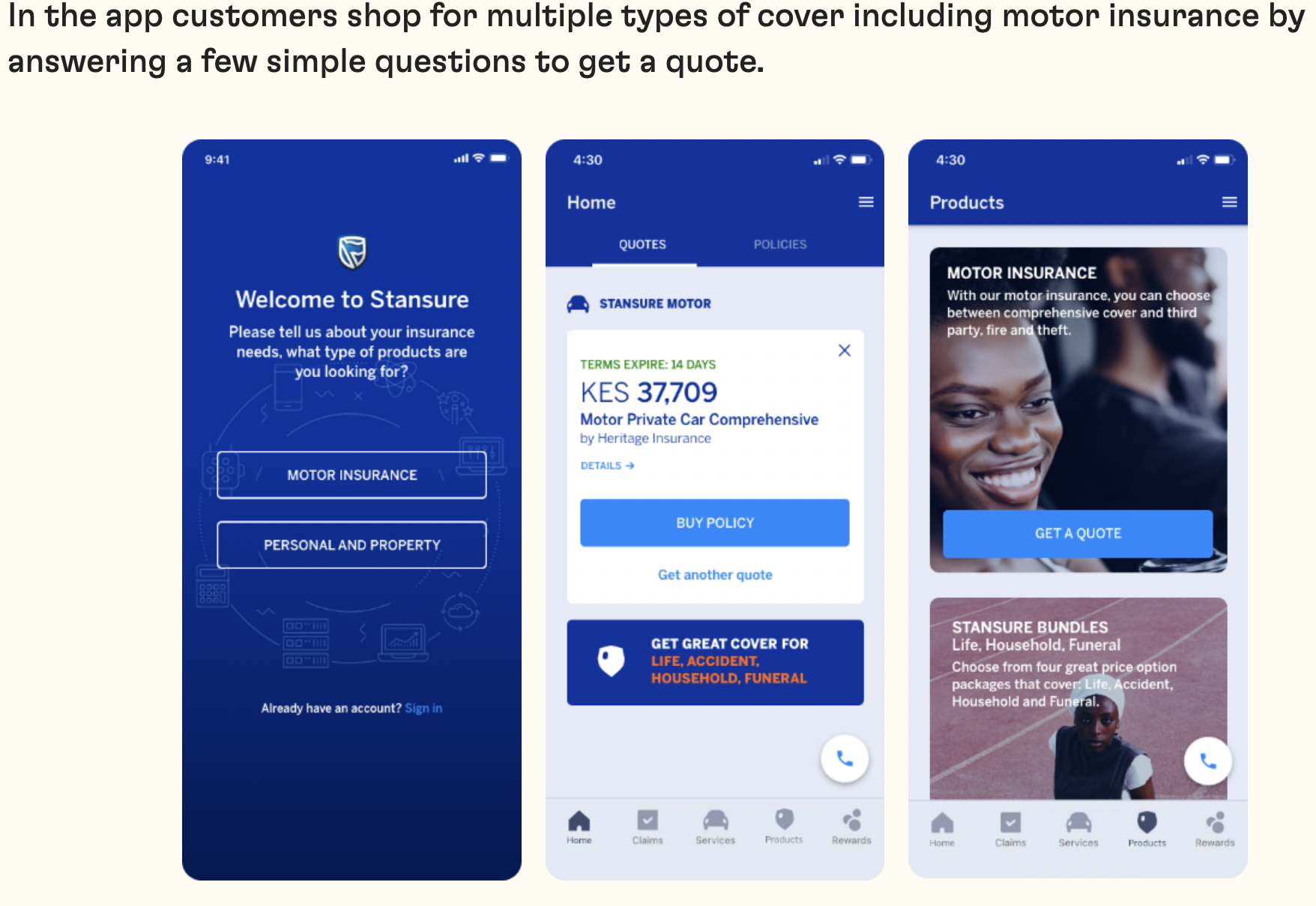Right from the launch of its first product in 2020, Kenyan insurtech Lami Technologies set out to increase insurance penetration in Kenya and the rest of Africa. They began on this path by building and distributing an end-to-end digital insurance platform and API that allowed businesses in different sectors to create tailored insurance solutions for their customers.
With its API platform gaining ground in the insurance space, the startup is also planning to provide tech solutions that will digitize agents and brokers too, helping them streamline their operations — to reach a wide customer base and sell online. These plans also include enabling the digitization of traditional insurers as innovation continues to shape the industry.
Speaking to Techcrunch, Lami’s founder and CEO, Jihan Abass, further announced plans to offer additional insurance product lines, while also revealing that the startup has made an entry into Egypt and Nigeria. All this against the backdrop of a $3.7 million seed extension raised in a round led by Harlem Capital — which invests in minority and women founders.
Other investors that participated in the round includes early-stage VC firm Newtown Partners, Peter Bruce-Clark, a partner at New York’s research-driven venture capital company Social Impact Capital, Caribou Honig and Jay Weintraub of InsureTech Connect, a networking platform for insurtech innovators, and senior members from Exotix Advisory, a corporate finance and mergers and acquisition boutique focused on emerging markets. The latest funding adds to the $1.8 million seed funding the insurtech raised last year.
Speaking about its growth strategies, Ms. Abass affirmed the firm’s plans to continuously innovate as they explore new ways of increasing insurance penetration across the continent – which currently stands at below 3%.
“On the technology side we want to cater to the entire insurance ecosystem. So, it’s not only the digital platforms that want to sell insurance products, but also to help existing players be more efficient in their distribution of products, allowing them to play a role in increasing the insurance penetration level. This includes agents and brokers – we are looking into how we can empower them to sell more policies,” she said, while adding that Lami is using the funding to hire, fast-track its expansion plans and to drive underwriter partnerships.
Explaining their investment in Lami, Harlem Capital principal Gabby Cazeau said: “We believe the next wave of fintech will embed financial products and services like insurance into a customer’s purchase experience. Lami’s approach to serving people through strategic partners in e-commerce and finance is the best way to build trust with users and deliver insurance in a seamless, accessible way to Africans across the continent.”
Lami co-designs products with its underwriting partners, presently 25 in number, who help use its API to facilitate the distribution of insurance products via a B2B2C approach.

Lami Technologies, which has expanded to Nigeria and Egypt, plans to offer additional insurance product lines. Image Credits: Lami Technologies
The startup’s API allows entities like banks to offer digital insurance products to their customers. Lami has also integrated its API with over 15 entities in various sectors, including logistics, e-commerce, banking and fintech.
Among Lami’s partners is buy now pay later startup Lipa Later, which it supports through insurance against payment default for the financed products. The insurtech works with Sendy too to enable freight carriers in East Africa (Kenya, Uganda and Tanzania) to access transit insurance on per-trip basis, and also with Kwara to make insurance products accessible to the over 60,000 SACCO (credit union) members. Other clients are e-commerce platform Jumia, retail B2B and end-to-end distribution platform, MarketForce, and Stanbic Bank Insurance – which uses Lami’s technology to power bancassurance products.
Lami entered the market in January 2020, with a consumer facing product, Griffin insurance, arguably the first digital car insurance platform. It then pivoted to offer a product agnostic API platform that powers digital insurance products. This has helped it grow its portfolio to 85,000 from 70,000 policies at the end of 2021, and quadrupled the premiums underwritten to $800,000 last year — the company predicts that this will grow to over $2 million this year.

Stanbic Bank uses Lami’s SaaS platform to power its bancassurance products. Image Credits: Lami Technologies
The expected growth will largely be fueled by increasing partnerships and product lines, and the aggressive expansion plans it embarked on this year when it entered Malawi and the Democratic Republic of Congo (DRC) after acquiring Bluewave. The acquisition helped Lami to tap Bluewave’s clientele and technologies that enable access to micro-insurance products through diverse channels like USSD and WhatsApp chatbots.
Abass anticipates more growth opportunities with additional partnerships from tech-enabled businesses and as more insurance companies digitize.
“Insurance companies have realized that they cannot rely on traditional distribution channels any longer; they need to also diversify for their own financial wellbeing. And then also when it comes to digital platforms, I think they’ve also realized that it’s an easy way for them to diversify their revenue streams,” said Abass.
“The landscape has really transformed since we launched our first product two years ago. People are more open to digital distribution channels. We expect to see significant growth on the B2B2C side. This is where we see a lot of opportunity as we expand into other markets.”

